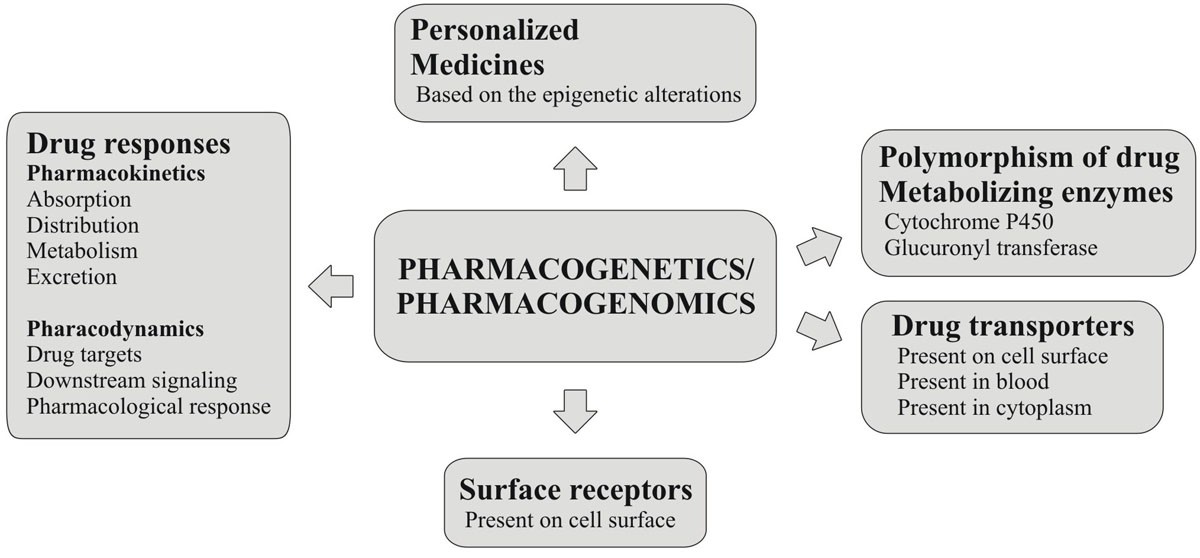HEALTH
Doctorhub360.com Neurological Diseases: A Complete Guide

Doctorhub360.com Neurological Diseases impact millions of people globally each year, influencing their quality of life, productivity, and overall well-being. These conditions encompass a wide array of disorders that affect the brain, spinal cord, and nerves, playing a critical role in how our bodies function. While navigating these illnesses can be overwhelming, understanding them is pivotal to gaining more control over your health.
Doctorhub360.com seeks to provide comprehensive, accessible, and trustworthy information about neurological diseases. This guide explores the causes, symptoms, treatments, and management strategies associated with some major neurological conditions to empower you with knowledge. Whether you’re someone experiencing these conditions, a caregiver, or just curious, this blog is tailored for anyone eager to better understand neurological health.
What are Doctorhub360.com Neurological Diseases?
Doctorhub360.com Neurological Diseases are conditions that impact the central and peripheral nervous systems, which include the brain, spinal cord, cranial nerves, and peripheral nerves. They may arise from genetic disorders, trauma, infections, lifestyle factors, or autoimmune diseases and can manifest in various ways, affecting coordination, cognition, and sensation.
Some well-known neurological diseases include:
- Alzheimer’s Disease – A progressive neurodegenerative condition that primarily affects memory and cognitive function.
- Parkinson’s Disease – A motor system disorder caused by the degeneration of dopamine-producing neurons.
- Epilepsy – A condition characterized by recurrent seizures due to abnormal brain activity.
- Multiple Sclerosis (MS) – An autoimmune disorder where the immune system attacks the myelin sheath protecting nerve fibers, disrupting communication in the nervous system.
- Migraine – A debilitating headache disorder often accompanied by other symptoms like nausea and sensitivity to light.
Understanding the underlying mechanisms of these conditions is vital to identifying modes of treatment and fostering early intervention.
Common Causes and Risk Factors
Neurological diseases often stem from an intricate interplay between genetic, environmental, and lifestyle factors. While each condition has its specific triggers, some common causes and risk factors include:
1. Genetic Predisposition
Disorders like Huntington’s disease or certain types of epilepsy may be inherited. Family history plays a crucial role in evaluating the likelihood of developing such conditions.
2. Trauma or Injury
Brain injuries or spinal cord damage, often caused by accidents or physical impact, can lead to conditions like traumatic brain injury (TBI) or paralysis.
3. Aging
Natural aging processes can contribute to conditions such as Alzheimer’s and Parkinson’s diseases.
4. Lifestyle Choices
Smoking, alcohol consumption, poor diet, and lack of exercise can exacerbate risks for strokes and migraines.
5. Environmental Exposure
Prolonged exposure to toxins or heavy metals, such as lead or mercury, has been linked to neurological damage.
6. Autoimmune Responses
Disorders like multiple sclerosis arise when the body’s immune system mistakenly targets its own nerve cells.
Symptoms to Watch Out For
Symptoms of neurological diseases can vary widely depending on the specific condition and areas of the nervous system affected. Common warning signs include:
- Persistent headaches or migraines
- Memory loss or confusion
- Muscle weakness or numbness
- Uncontrollable tremors or muscle spasms
- Impaired speech or difficulty swallowing
- Dizziness, lack of coordination, or unsteady gait
- Seizures, involving convulsions or loss of consciousness
If you or someone close to you experiences these symptoms persistently, it’s vital to consult a healthcare professional for a proper diagnosis.
Diagnosing Neurological Diseases
Neurological diagnoses often involve comprehensive evaluations, including:
- Medical History Review: Understanding family history, lifestyle, and pre-existing conditions.
- Physical and Neurological Exams: Testing motor skills, reflexes, coordination, and vision.
- Imaging Tests: MRI, CT scans, or PET scans can provide detailed visuals of the brain and spine to detect abnormalities.
- Electrodiagnostic Tests: Tools such as EEGs and EMGs monitor electrical activity in the brain and nerves.
- Genetic Testing: Identifies inherited disorders or predispositions.
Early detection is key—effective diagnosis ensures timely treatment to prevent progression and minimize complications.
Treatments for Neurological Diseases
Though many neurological conditions have no definitive cure, various approaches can effectively manage symptoms and improve quality of life:
1. Medications
- Anti-seizure medications (epilepsy)
- Dopaminergic drugs (Parkinson’s)
- Beta-interferons (multiple sclerosis)
- Pain relievers (migraines)
2. Surgical Interventions
For disorders like epilepsy or brain tumors, surgical procedures may address root causes or alleviate symptoms.
3. Therapies
- Physical Therapy: Enhances mobility and muscle strength.
- Occupational Therapy: Improves daily living skills.
- Speech Therapy: Aids in communication impairments (e.g., after strokes).
4. Lifestyle Adjustments
A balanced diet, regular exercise, stress management, and proper sleep go a long way in managing symptoms and preventing complications.
5. Innovative Treatments
Cutting-edge advancements like deep brain stimulation, stem cell therapy, and AI-based medical devices offer game-changing potential for neurological care.
Strategies for Living with Neurological Diseases
Managing a neurological condition is a lifelong process. Here are some practical strategies to improve daily life:
- Education and Awareness: Stay informed about your condition and treatment options.
- Support Groups: Join communities of people with similar experiences to share advice and resources.
- Build a Care Team: Collaborate with healthcare professionals, including neurologists, therapists, and dieticians.
- Adopt Assistive Technology: Use devices, apps, or mobility aids to maintain independence.
The Role of Doctorhub360.com in Neurological Health
Navigating neurological conditions can be daunting, but you don’t have to go through it alone. Doctorhub360.com serves as a trusted resource, connecting individuals to:
- Comprehensive guides about neurological disorders.
- Expert-recommended strategies for symptom management.
- Tools to locate neurologists, physical therapists, and other specialists nearby.
Empowering patients with knowledge is at the heart of Doctorhub360.com’s mission. With the right resources, individuals can make informed decisions about their care and reclaim control over their lives.
Take Charge of Your Neurological Health Today
Understanding neurological diseases is the first step toward managing them effectively. From recognizing symptoms to exploring cutting-edge treatments, staying proactive can make all the difference.
Want to learn more or connect with specialists in your area? Visit Doctorhub360.com to explore resources, expert insights, and a supportive community committed to neurological health.
HEALTH
Spectrum Multivitamin: Nutrition for Child Development

As parents, making sure our children get the right nutrients for their growth and development is a top priority. Multivitamins play a crucial role in filling nutritional gaps, especially for picky eaters or those with dietary restrictions. Spectrum multivitamin is designed to provide essential nutrients that support a child’s overall development, making it a helpful part of their daily routine.
The spectrum multivitamin is full of different vitamins and minerals that are essential for children’s health. These nutrients help with growth, boost the immune system, and improve brain function. In the sections that follow, we will explore the unique benefits of spectrum multivitamin for kids, the role of spectrum vitamins and minerals, and how to choose the right multivitamin for your child.
Why Choose Spectrum Multivitamin for Kids?
Choosing the right multivitamin for your child can be overwhelming, but spectrum multivitamin has several benefits that make it a great choice:
- Tailored for Children: Spectrum multivitamins are specifically formulated to meet the nutritional needs of growing children, ensuring they receive the right balance of vitamins and minerals.
- Supports Growth and Development: These multivitamins contain essential nutrients like calcium, vitamin D, and iron, which are crucial for bone health and cognitive development.
- Boosts Immune System: With vitamins like C and E, spectrum multivitamins help strengthen the immune system, keeping children healthier and more resilient to common illnesses.
According to WebMD, multivitamins can fill nutritional gaps and provide a safety net for essential nutrients that might be missing from a child’s diet. This is particularly important during growth spurts when their nutritional needs are higher.
Understanding Spectrum Vitamins and Minerals
Spectrum vitamins and minerals are important parts of a balanced diet, especially for children. These nutrients help with body functions and overall health. Spectrum vitamins include a wide range of vitamins such as A, B, C, D, and E, each contributing to different aspects of health. Minerals like calcium, iron, and magnesium are equally important, aiding in bone development, oxygen transportation, and energy production.
For children, having a diet rich in these vitamins and minerals is important for their growth. According to Harvard’s Nutrition Source, these nutrients help in building strong bones, boosting the immune system, and supporting brain development. Ensuring that children receive the right amount of spectrum vitamins and minerals can make a significant difference in their health and development.
Simple Spectrum Multivitamin: A Comprehensive Solution
The simple spectrum multivitamin provides a full solution for children’s nutrition needs. It is made to give a balanced mix of important vitamins and minerals just for kids. This formulation ensures that children receive the nutrients they need for optimal growth and development.
Some of the features that set the simple spectrum multivitamin apart include:
- Balanced Nutrient Profile: It contains a well-rounded mix of vitamins and minerals that cater to the specific needs of children.
- Easy to Digest: Formulated to be gentle on the stomach, making it suitable for daily use.
- Supports Overall Health: Helps in boosting immunity, enhancing cognitive function, and promoting strong bones.
Choosing a simple spectrum multivitamin can be a great step towards ensuring that your child receives all the essential nutrients they need in their formative years, setting a foundation for a healthy future. For more information on these supplements, you can visit Simple Spectrum Supplement’s FAQ page.
Full Spectrum Vitamins and Support: Meeting All Nutritional Needs
When it comes to ensuring your child receives all the essential nutrients, full spectrum vitamins and spectrum support vitamins play an important role. These vitamins are designed to provide a comprehensive nutritional profile that supports overall health and well-being for children.
Here’s why full spectrum vitamins help:
- Comprehensive Nutritional Profile: Full spectrum vitamins cover a wide range of nutrients, ensuring that children receive all the essential vitamins and minerals they need for healthy development.
- Enhanced Health and Well-being: These vitamins support various bodily functions, from boosting the immune system to promoting strong bones and teeth.
- Balanced Diet Support: They help fill any nutritional gaps that might exist in a child’s diet, ensuring balanced growth.
Specific vitamins, such as vitamin D, calcium, and iron, are particularly important for child development. Full spectrum vitamins ensure these are adequately included, supporting everything from brain development to energy levels.
Choosing the Right Spectrum Needs Multivitamin
Finding the right spectrum needs multivitamin for your child can be a tough task. But with the right help, you can make a smart choice for your child’s health.
Here are some tips to consider when selecting a multivitamin:
- Check the Label: Ensure the multivitamin provides a comprehensive range of vitamins and minerals suitable for your child’s age.
- Consult a Healthcare Professional: Speak with a pediatrician or a nutritionist to understand your child’s specific nutritional needs.
- Look for Quality: Choose multivitamins from reputable brands that adhere to high manufacturing standards.
- Consider Dietary Restrictions: If your child has any allergies or dietary restrictions, ensure the multivitamin is free from allergens or unwanted ingredients.
For more information on choosing the right multivitamin, you can refer to resources like WebMD’s guide on selecting multivitamins.
The Benefits of Simple Spectrum Vitamin Supplement
Today, making sure children get all the nutrients they need can be hard. This is where a simple spectrum vitamin supplement can make a significant difference. Here are some benefits:
- Fills Nutritional Gaps: Even with a balanced diet, children may miss out on essential nutrients. A simple spectrum vitamin supplement can help bridge these gaps, ensuring they receive a comprehensive range of vitamins and minerals.
- Supports Growth and Development: These supplements are formulated to support the physical and mental development of children, promoting healthy growth.
- Easy to Incorporate: Simple spectrum vitamin supplements are designed to be easy for children to take, whether in chewable form or as a liquid, making them a convenient addition to daily routines.
- Boosts Immune System: By providing essential nutrients, these supplements can help strengthen the immune system, keeping children healthier and more resilient.
Final Thoughts: The Importance of Spectrum Multivitamin
In summary, spectrum multivitamins provide a full solution to help your child’s health, growth, and development. By incorporating these into their daily routine, you can help ensure they receive the nutrients they need to thrive. They give all the important nutrients that can be hard to get from just food. They support both physical growth and cognitive development, crucial during childhood, and help maintain a balanced diet, which is vital for long-term health.
As parents, it’s important to consider the nutritional needs of your children carefully. By integrating spectrum multivitamins, you can support their development and set them on a path to a healthier future.
HEALTH
Spectrum Multivitamin: Nutrition for Child Development

As parents, making sure our children get the right nutrients for their growth and development is a top priority. Multivitamins play a crucial role in filling nutritional gaps, especially for picky eaters or those with dietary restrictions. Spectrum multivitamin is designed to provide essential nutrients that support a child’s overall development, making it a helpful part of their daily routine.
The spectrum multivitamin is full of different vitamins and minerals that are essential for children’s health. These nutrients help with growth, boost the immune system, and improve brain function. In the sections that follow, we will explore the unique benefits of spectrum multivitamin for kids, the role of spectrum vitamins and minerals, and how to choose the right multivitamin for your child.
Why Choose Spectrum Multivitamin for Kids?
Choosing the right multivitamin for your child can be overwhelming, but spectrum multivitamin has several benefits that make it a great choice:
- Tailored for Children: Spectrum multivitamins are specifically formulated to meet the nutritional needs of growing children, ensuring they receive the right balance of vitamins and minerals.
- Supports Growth and Development: These multivitamins contain essential nutrients like calcium, vitamin D, and iron, which are crucial for bone health and cognitive development.
- Boosts Immune System: With vitamins like C and E, spectrum multivitamins help strengthen the immune system, keeping children healthier and more resilient to common illnesses.
According to WebMD, multivitamins can fill nutritional gaps and provide a safety net for essential nutrients that might be missing from a child’s diet. This is particularly important during growth spurts when their nutritional needs are higher.
Understanding Spectrum Vitamins and Minerals
Spectrum vitamins and minerals are important parts of a balanced diet, especially for children. These nutrients help with body functions and overall health. Spectrum vitamins include a wide range of vitamins such as A, B, C, D, and E, each contributing to different aspects of health. Minerals like calcium, iron, and magnesium are equally important, aiding in bone development, oxygen transportation, and energy production.
For children, having a diet rich in these vitamins and minerals is important for their growth. According to Harvard’s Nutrition Source, these nutrients help in building strong bones, boosting the immune system, and supporting brain development. Ensuring that children receive the right amount of spectrum vitamins and minerals can make a significant difference in their health and development.
Simple Spectrum Multivitamin: A Comprehensive Solution
The simple spectrum multivitamin provides a full solution for children’s nutrition needs. It is made to give a balanced mix of important vitamins and minerals just for kids. This formulation ensures that children receive the nutrients they need for optimal growth and development.
Some of the features that set the simple spectrum multivitamin apart include:
- Balanced Nutrient Profile: It contains a well-rounded mix of vitamins and minerals that cater to the specific needs of children.
- Easy to Digest: Formulated to be gentle on the stomach, making it suitable for daily use.
- Supports Overall Health: Helps in boosting immunity, enhancing cognitive function, and promoting strong bones.
Choosing a simple spectrum multivitamin can be a great step towards ensuring that your child receives all the essential nutrients they need in their formative years, setting a foundation for a healthy future. For more information on these supplements, you can visit Simple Spectrum Supplement’s FAQ page.
Full Spectrum Vitamins and Support: Meeting All Nutritional Needs
When it comes to ensuring your child receives all the essential nutrients, full spectrum vitamins and spectrum support vitamins play an important role. These vitamins are designed to provide a comprehensive nutritional profile that supports overall health and well-being for children.
Here’s why full spectrum vitamins help:
- Comprehensive Nutritional Profile: Full spectrum vitamins cover a wide range of nutrients, ensuring that children receive all the essential vitamins and minerals they need for healthy development.
- Enhanced Health and Well-being: These vitamins support various bodily functions, from boosting the immune system to promoting strong bones and teeth.
- Balanced Diet Support: They help fill any nutritional gaps that might exist in a child’s diet, ensuring balanced growth.
Specific vitamins, such as vitamin D, calcium, and iron, are particularly important for child development. Full spectrum vitamins ensure these are adequately included, supporting everything from brain development to energy levels.
Choosing the Right Spectrum Needs Multivitamin
Finding the right spectrum needs multivitamin for your child can be a tough task. But with the right help, you can make a smart choice for your child’s health.
Here are some tips to consider when selecting a multivitamin:
- Check the Label: Ensure the multivitamin provides a comprehensive range of vitamins and minerals suitable for your child’s age.
- Consult a Healthcare Professional: Speak with a pediatrician or a nutritionist to understand your child’s specific nutritional needs.
- Look for Quality: Choose multivitamins from reputable brands that adhere to high manufacturing standards.
- Consider Dietary Restrictions: If your child has any allergies or dietary restrictions, ensure the multivitamin is free from allergens or unwanted ingredients.
For more information on choosing the right multivitamin, you can refer to resources like WebMD’s guide on selecting multivitamins.
The Benefits of Simple Spectrum Vitamin Supplement
Today, making sure children get all the nutrients they need can be hard. This is where a simple spectrum vitamin supplement can make a significant difference. Here are some benefits:
- Fills Nutritional Gaps: Even with a balanced diet, children may miss out on essential nutrients. A simple spectrum vitamin supplement can help bridge these gaps, ensuring they receive a comprehensive range of vitamins and minerals.
- Supports Growth and Development: These supplements are formulated to support the physical and mental development of children, promoting healthy growth.
- Easy to Incorporate: Simple spectrum vitamin supplements are designed to be easy for children to take, whether in chewable form or as a liquid, making them a convenient addition to daily routines.
- Boosts Immune System: By providing essential nutrients, these supplements can help strengthen the immune system, keeping children healthier and more resilient.
Final Thoughts: The Importance of Spectrum Multivitamin
In summary, spectrum multivitamins provide a full solution to help your child’s health, growth, and development. By incorporating these into their daily routine, you can help ensure they receive the nutrients they need to thrive. They give all the important nutrients that can be hard to get from just food. They support both physical growth and cognitive development, crucial during childhood, and help maintain a balanced diet, which is vital for long-term health.
As parents, it’s important to consider the nutritional needs of your children carefully. By integrating spectrum multivitamins, you can support their development and set them on a path to a healthier future.
HEALTH
Personalized Medicine: The Role of Pharmacokinetics

Personalized Medicine in Modern Healthcare
Personalized medicine is a crucial aspect of modern healthcare. It utilizes personal data to create tailored treatment programs for each patient. This strategy deviates from the conventional “one-size-fits-all” approach by considering environmental, lifestyle, and hereditary factors to enhance therapeutic results and reduce potential adverse effects.
One critical component of this approach is clinical Pharmacokinetics New York, which examines how a drug moves through the body, predicting its absorption, distribution, metabolism, and excretion. Personalized medicine, a powerful tool in combating diseases worldwide, aims to improve efficacy, reduce unnecessary treatments, and enhance patient quality of life by tailoring drug regimens according to individual differences. Further insights can be gained from resources like the NIH’s comprehensive exploration of personalized medicine.
Understanding Pharmacokinetics
Pharmacokinetics, the study of how drugs are processed in the body, is fundamental to personalized therapy. It encompasses several critical processes: absorption, which determines how a drug is taken up into the bloodstream; distribution, which indicates how the drug spreads throughout the body’s tissues; metabolism, which transforms the drug into active or inactive substances; and excretion, which outlines how a drug or its metabolites are eliminated from the body.
By comprehending these processes, healthcare providers can predict how different patients will respond to medications, which is essential for tailoring drug choices and dosing. For instance, individuals may metabolize a drug at varying rates due to genetic differences. Recognizing these variations can prevent adverse reactions and improve therapeutic effectiveness. This accuracy ensures that patients receive the finest care possible. Further reading on the importance of pharmacokinetics can be found in the FDA’s detailed guide on pharmacokinetics and pharmacodynamics basics.
The Role of Pharmacogenomics
Pharmacogenomics is integral to personalized medicine, focusing on how genetic variation affects individual drug responses. By understanding genetic differences, healthcare providers can predict how well patients will respond to a particular medication or whether they might suffer adverse effects. This information makes it possible to create customized treatments considering metabolic and genetic variables affecting medication safety and effectiveness.
Pharmacogenomics has been successfully applied in various fields, such as oncology, where genetic testing helps determine the most effective chemotherapy regimen. In cardiology, genetic tests help identify the best anticoagulant therapy for individual patients. These applications underscore the transformative potential of integrating pharmacogenomics with pharmacokinetics, paving the way for safer, more effective personalized therapies.
Current Challenges and Limitations
Despite personalized medicine’s potential, several barriers remain. The cost of developing and administering tailored therapies can be prohibitive, placing financial strain on healthcare systems and patients. Furthermore, the complexity of interpreting genetic data requires specialized knowledge and resources, limiting widespread implementation.
Moreover, ethical and regulatory challenges must be addressed, particularly concerning the privacy and security of genetic data. Patients and providers express concerns about how this sensitive information is used and shared. Balancing these concerns with the benefits of personalized medicine is crucial for its successful incorporation into routine healthcare practice.
Innovations Driving Change
Technological advancements are fueling the progression of personalized medicine. Innovations in drug monitoring and delivery systems enable more precise control of medication regimens, allowing for real-time adjustments based on patient responses. Artificial intelligence and machine learning are also increasingly used to improve treatment plans, predict how patients react to medications, and improve healthcare outcomes.
These technologies offer the potential to make personalized medicine more accessible and practical, streamlining the process of developing and delivering individualized treatment plans. As these innovations continue to evolve, they are expected to play a critical role in the widespread adoption and success of personalized medicine.
Implications for Patients and Healthcare Providers
The rise of personalized medicine empowers patients by involving them more actively in their healthcare decisions. By tailoring treatments to individual needs, customized medicine encourages greater adherence to medication protocols and enhances patient engagement. When patients comprehend how their treatment programs address their unique problems and concerns, they are likelier to stick with them.
For healthcare providers, adopting personalized medicine necessitates updates in practice guidelines and ongoing education to ensure competency in genetic testing and data interpretation. This shift requires a collaborative approach, with healthcare teams working together to integrate new treatment models effectively.
The Future of Personalized Medicine
Personalized medicine can drastically change the healthcare industry as it develops. Future trends suggest a shift from broad-spectrum therapies to more targeted drug development, focusing on each patient’s unique biological characteristics.
Policy changes and increased investment in genetic research and technology will likely be necessary to support these advances. By ensuring fair access to individualized healthcare, such policies will promote a more effective and inclusive healthcare system that meets the various requirements of people worldwide.
Conclusion
In summary, personalized medicine, driven by the intricate science of pharmacokinetics, holds immense potential for improving patient care. Despite obstacles, this strategy’s continued advancement and use portends a new age in individualized care, providing hope for improved global health outcomes and a more adaptable healthcare system.
-

 BLOG2 months ago
BLOG2 months agoIZoneMedia360 .Com: Exploring the Features and Benefits
-

 BLOG5 months ago
BLOG5 months agoAbout Blog TurboGeekOrg: A Go-To Hub for Tech Enthusiasts and Latest Innovations
-

 BLOG5 months ago
BLOG5 months agoWhat is a Golden Transit in Magi Astrology?
-

 BLOG2 months ago
BLOG2 months agoA Complete Guide to ProcurementNation.com Shipping
-

 ENTERTAINMENT5 months ago
ENTERTAINMENT5 months agoTyquaez Pickett: A Rising Star in the Entertainment World
-

 NEWS1 month ago
NEWS1 month agoChloe Berger News: Insights on Employee Rights and Talent Retention
-

 HOME2 months ago
HOME2 months ago5StarsStocks.com Nickel: Invest for a Bright Future
-

 BLOG4 months ago
BLOG4 months agoWho Is Hall Sinclair? The True Story of Olivia Colman’s Son
